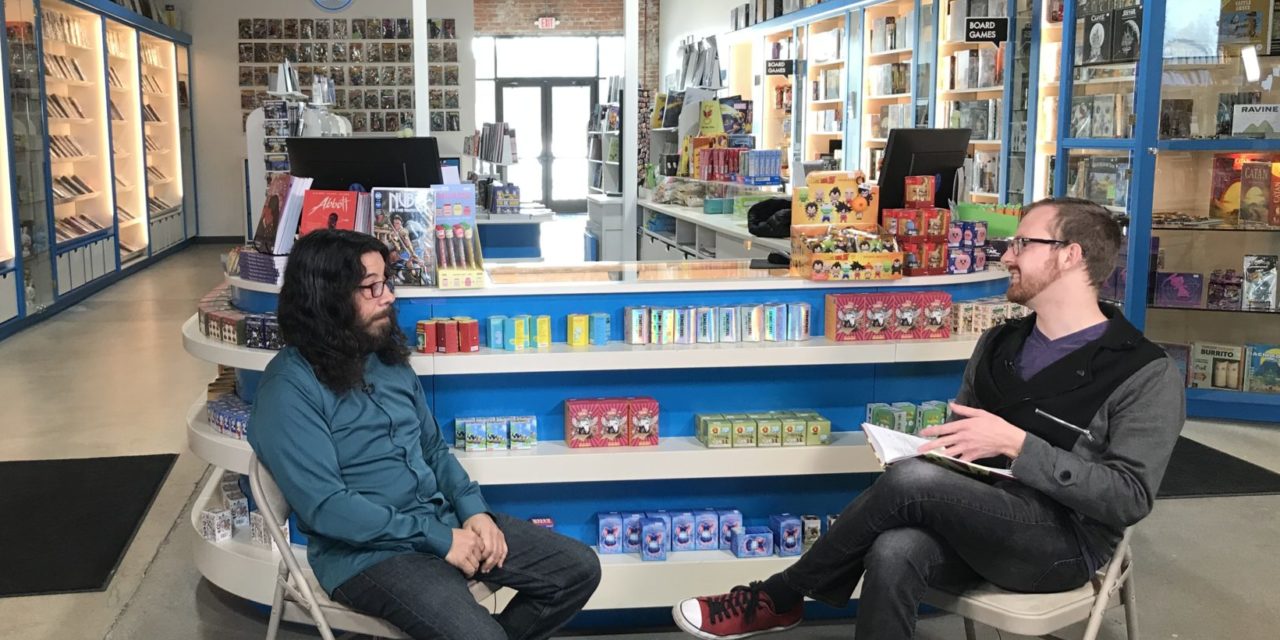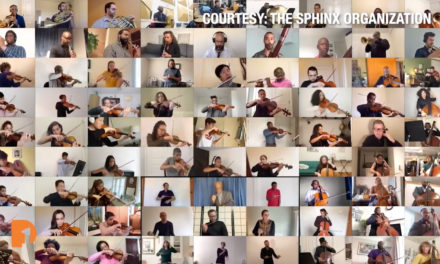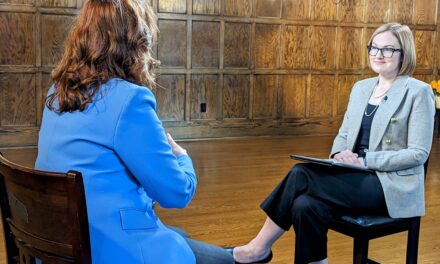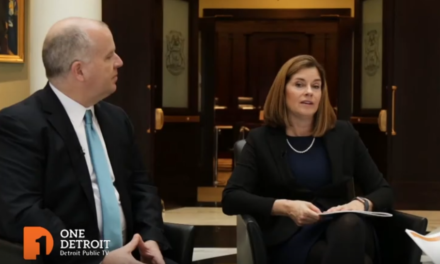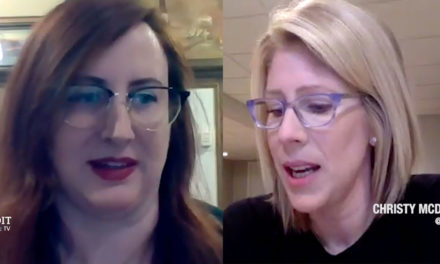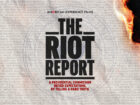On the heels of penning his latest Marvel comic book series, ‘The Spine-Tingling Spider-Man,’ Eisner award-winning comic book author Saladin Ahmed met up with One Detroit Editor Chris Jordan at Vault of Midnight Comics for a wide-ranging discussion about his upcoming new Spider-Man series, writing other Marvel comics, his independent work and more.
The Detroit-based comic book author shares more about writing Marvel’s “Ms. Marvel,” “Black Bolt,” and “Miles Morales: Spider-Man” comic series, as well as his own original series “Abbott,” a supernatural mystery that takes place in 1970s-era Detroit. Jordan and Ahmed also talk at length about Ahmed’s recently launched independent comic website, Copper Bottle, his philosophy behind writing stories representative of the audiences reading his work, and how being based in metro Detroit has influenced his writing.
Ahmed discusses the role he believes comic books play in sparking conversations around real-world issues and discussions of diversity, inclusion and representation both on and off the page. Check out the extended interview below.
Watch Now:
Abbreviated Transcript:
Chris Jordan: Saladin Ahmed, this has been a very exciting time for your work. Comic fans know you as now the long-time writer of “Miles Morales”, but now this year you branched out to two other Spider-Man series. And you just launched “Copper Bottle”, your subscription service for indie comics. “Spine-tingling Spider-Man”, brand new first issue just dropped at the end of October. You’re writing three different iterations of that character. What makes this one different?
Saladin Ahmed, Author: I’ve always loved Peter Parker. I’ve grown a very powerful relationship with Miles Morales, writing him the past few years. But of course, Peter was the Spider-Man I knew growing up. And to me, he’s always been his most inspiring when he’s got the toughest odds against him. And then the fact that horror stories, which I also dabble in a lot, are really about the odds being against you, sometimes overwhelmingly, right, and that’s where the sense of horror comes from.
I went to Marvel and basically was like, I have, I really want to do a horror book featuring Peter Parker, and, you know, they were very supportive of it. I’ve lucked out extremely by getting the artist, Jaun Ferrerya, who’s just astonishing talent. And that’s the thing that we always have to talk about when we talk about comics, is art, you know, makes the comic. I can have all the ideas in the world, and it’s just an idea until somebody draws it. And Jaun took the thing to another level. It’s super important to me to talk about the world around us, even whether I’m talking about aliens or elves or vampires.
I’m still talking about our world in our time, and I think we have a responsibility to do that as storytellers. We’re part of a larger world and dire things are happening in that world right now to a lot of people. And if we don’t talk about that stuff as much as we’re able to in the arenas that we’re able to, I think we’re, you know, falling down on our duties as human beings
Chris Jordan: In “Abbott”, the way that page one of that comic is, you know, “Abbott” breaking the story of the police killing of a black teenager; it really hits home to our world now.
Saladin Ahmed: “Abbott” was my first creator-owned comic, and it’s the story of a female black journalist in the 1970s working at a white newspaper. And it’s a story about race, it’s a story about gender, as much as anything, it’s a story about Detroit. I’m from Dearborn, right? I’m from an Arab enclave in Dearborn, from an immigrant community there that raised me. But I was always raised with a love for and respect for Detroit. And also, I was raised with an awareness that Detroit had been slandered.
The kind of predominant narrative in the suburbs was sort of, oh Detroit so dangerous, it’s falling apart, it used to be great, and it’s a transparently racist sort of take when you strip away just a layer of kind of why people felt that way about Detroit. And so, you know, to me, one of the most important things writers do is to expose lies and tell the truth.
It’s why I made a journalist the hero of my story rather than a police officer or a detective. On the one hand, Abbott is, you know, is a fun, scary story, hopefully about a woman using magic powers to hunt evil wizards and a darkness that is haunting the land. But it’s also very much a story about the history of Detroit and about the way in which Detroit, in the 70s, even as people were saying it was falling apart or was going to the dogs or whatever, was a place of renaissance, of true cultural renaissance of emancipation.
Chris Jordan: Growing up in Dearborn and near Detroit, how does that translate over for you into these other stories that are, you know, sets outside Detroit?
Saladin Ahmed: I knew that I wanted to create Michigan heroes, Detroit heroes when I went to Marvel. So, the first character that I created with Detroit roots was in Miles Morales Spider-Man, and her name is Tiana Toomes a.k.a. Starling. When I started to think about who this character was, Detroit called out to me, and so we got to do some really great scenes about in her origin issue with her practicing her wings, flying above the Detroit River and flying around the Renaissance Center and stuff like that.
And then, I did have to represent my own Dearborn, Michigan and Arab-Americans, and so I created their Fadi Fadlallah also known as Amulet in the pages of Ms. Marvel, and he’s a kind of big, beefy, good thick boy who’s a football player with a heart of gold, and he comes to New Jersey, which is where Ms. Marvel’s adventures of take place, from Dearborn, Michigan.
Chris Jordan: It is so important to have that representation on and off the page and making comics like just a more diverse medium.
Saladin Ahmed: I appreciate the distinction between on and off the page because they’re definitely separate things. I think that we’ve made strides, not as many as we could have, but we’ve made strides representing better what our culture looks like, right. There are Muslim characters on TV, there are trans characters in video games, there are, you know, things that when I was a kid, just plain weren’t there. I can remember how desperate I was to latch on to characters that had any bit of Arab-ness of Muslim-ness, no matter how cheesy and slightly stereotypically it might have been rendered, right.
My kids, when I talked to them about representation and I talk about how cool it is that Character X is of Y race or, well, they’re just sort of, well, yeah, of course. It’s not as big a deal to them, but the fact that it’s not a big deal is the big deal and represents some progress that I think we’ve made. We still live in a white supremacist country. We still live in a country that is patriarchal. We still live in a country where working people are treated like things rather than people. And our stories our going to reflect that. Some of us are working very hard to make the stories reflect a different reality and maybe try to and try and shape us toward another reality, but that will always be an uphill battle. And so, that brings up the kind of second part of the equation, which is what’s happening behind the scenes, and it’s often pretty ugly. Most of these fields are still incredibly male-dominated.
Whether it’s video games, whether it’s TV, whether it’s comics. I’ve been in those writing rooms, I’ve been in those meetings with executives and really seen what the real powers in these worlds look like, and they look pretty much like they’ve always looked, you know, a few more women, you know, but not many, and here and there a face of color, but not many. We always also have to be pushing for different kinds of faces behind the scenes. You know, the creators have to because it’s a question of political power and of resources, right.
Chris Jordan: And I know with “Copper Bottle”, kind of your mission statement with that is, you know, its creator-owned, independent comics, kind of with really like a focus on a lot of creators of color and women.
Saladin Ahmed: “Copper Bottle” is my pop-up imprint, as we’re calling it, dedicated to my creator-owned comics. Now I’m publishing a couple of titles, one called “Star Signs” and one that’s called “Terror War”. Terror War, drawn by a local artist, Dave Acosta, Detroit’s own, and we are producing work that we own is the simplest version of it. It’s we’re trying to move toward comics where if you’ve drawn that comic, if you’ve written that comic, you’ll have ownership of whatever that comic becomes so that people feel invested in the work that they’re creating. And to me, that’s just, it’s an extension of what I think we need to be doing as a culture generally.
Subscribe to One Detroit’s YouTube Channel & Don’t miss One Detroit Mondays and Thursdays at 7:30 p.m. on Detroit Public TV, WTVS-Channel 56.
Catch the daily conversations on our website, Facebook, Twitter @DPTVOneDetroit, and Instagram @One.Detroit
View Past Episodes >
Watch One Detroit every Monday and Thursday at 7:30 p.m. ET on Detroit Public TV on Detroit Public TV, WTVS-Channel 56.

